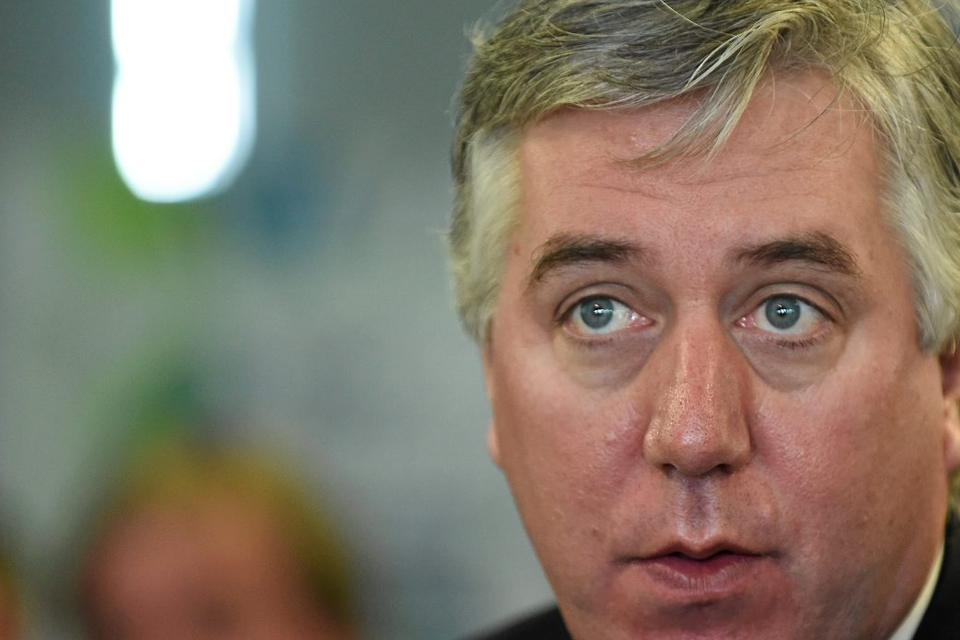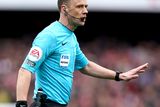More than TV money needed to fix FAI woes
FAI chief executive John Delaney
With a minimum €12m windfall accruing to the FAI should Ireland reach the finals of Euro 2016, it's little wonder John Delaney has vowed to resume his party piece of picking up the bar tab for fans in France.
The chief executive made the revelation almost a year ago at a time the feel-good factor surrounding the appointment of Martin O'Neill and Roy Keane was still in vogue.
Asked by Midlands Radio if he would be buying the pints at the pre-FAI annual general meeting social evening in Mullingar, Delaney replied: "Not this time. We'll wait till we get to the Euros before I ever do that again."
So confident was Delaney about the dynamic duo's influence on the senior team that he gave them an 80pc chance of emerging from Group D six weeks ahead of their opening qualifier in Georgia.
"I've got to the confident of qualifying and the fans expect us to qualify," he reasoned.
"The World Cup is more difficult - there's only 13 spots for UEFA - but we have to make it that, every time we get into a group, we aim to qualify."
As the Irish supremo was supposedly at the heart of the move to have the tournament expanded to 24 teams, it would be a chastening experience for him to be amongst an FAI delegation travelling to France in an observatory rather than participative capacity.
Pride is not the only commodity under threat by Ireland's precarious fourth-place position heading into the final four qualifiers.
Details of the FAI's latest accounts, published in yesterday's Irish Independent, prove that the association requires a significant income spike to counteract its €51.2m debt and associated annual charges on borrowings that soared to €5.4m during 2014.
Delaney had cited the new UEFA centralised television deal to illustrate that a route to financial stability existed as debts mounted, but the published returns show it is no panacea.
The €10m it guaranteed in 2014 when Gibraltar television networks were the only negotiators was one thing.
Yet that figure would have been achieved alone this year for the qualifier against world champions Germany in October.
Football-mad Poland, with a population of almost 40 million, was another safe bet to cut a deal as were Scotland.
Indeed, with Ireland's lowly fourth seeding for the 2018 World Cup draw, which is just three weeks away, ending up in a potential group with the likes of France, Italy and Poland would dwarf the UEFA income if the previous arrangement of brokering deals per match remained.
Popularity
UEFA, boosted by the popularity of the Champions League, is able to increase the prize-fund for the next Euros by 50pc based upon an expected sponsorship stream of €500m.
Although football is big business in Europe, the trend hasn't reached Ireland. Delaney will be 15 years in the post when his current contract lapses in 2020 and usually accompanying the various renewals is a comment noting the growth he's delivered to their commercial portfolio.
That aspect of the finances has increased, according to the accounts, but still lags behind the €8.1m amount declared for 2012.
It's not just on the financial scene where Irish football is losing pace. Roy Keane has already aired his concerns about the lack of talent equipped to aid the senior squad and arrest the team's worrying decline in the world rankings.
O'Neill and Keane can only wish Robbie Brady's touted transfer to Norwich City proceeds if they're to have an Irish-born player under the age of 25 operating in the Premier League next season.
A health warning is attached to delving further into the future. Ireland's U-21s didn't win a game in 2014 while the U-19s have qualified for the annual Euros just once in the past 13 years.
Though the U-17s reached their first showpiece since 2008 in May, they finished bottom of their group without scoring a goal in their three games.
"I worry about our future - there's no quick-fix here," sighed Keane.
It's a synopsis easily applicable to the FAI's finances, too.















